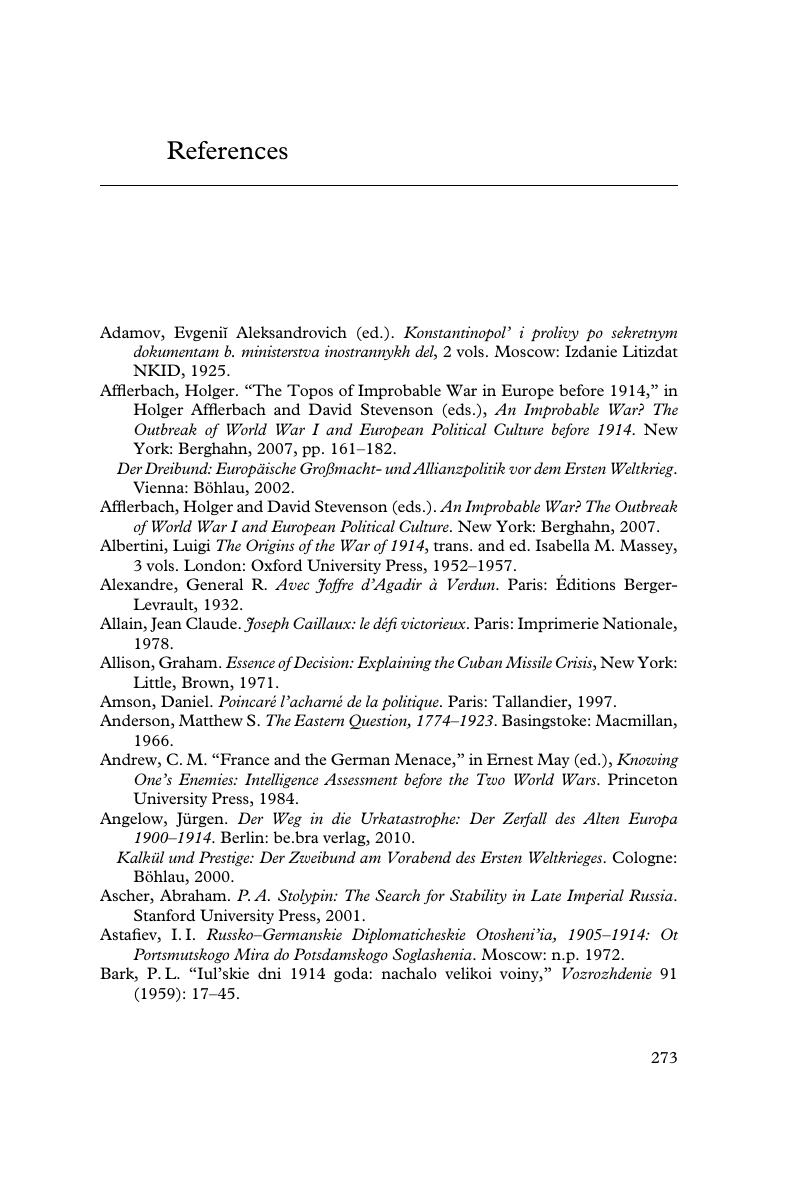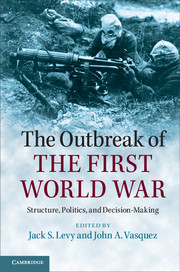Book contents
References
Published online by Cambridge University Press: 05 July 2014
Summary

- Type
- Chapter
- Information
- The Outbreak of the First World WarStructure, Politics, and Decision-Making, pp. 273 - 293Publisher: Cambridge University PressPrint publication year: 2014



